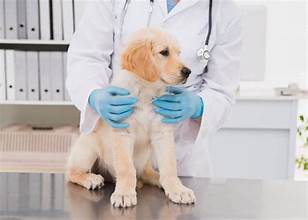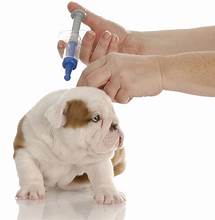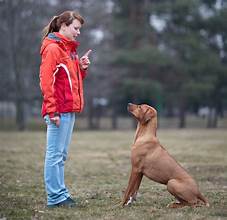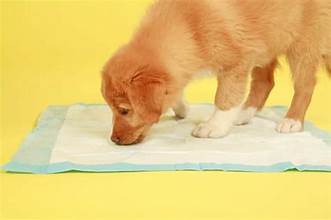Bringing home a puppy is not just a big responsibility; it’s also a source of immense joy and fulfillment
With their boundless energy and unconditional love, Puppies are an excellent addition to any home. To make sure that your puppy grows into a happy, healthy dog, here are some essential care tips to get you started:
Preparing your home:
Puppy-proofing: Puppies chew on everything and explore! Before your puppy arrives, walk through your home on your hands and knees to see the world from their perspective. Pick up anything that could be a choking hazard or could be damaged by chewing. Electrical cords, houseplants, and medications should all be out of reach. Close off areas you don’t want your puppy to enter, like baby gates

Supplies: Make sure you’re fully prepared for your new puppy by stocking up on a comprehensive list of essential supplies. These include a leash and collar with an ID tag for identification, food and water bowls for their nourishment, a comfortable bed for their rest, a crate or X-pen for their safety, chew toys for their entertainment, and puppy food for their nutrition.
Health and wellness:
Schedule a vet visit: Your responsibility and caring role as a puppy owner are crucial. Taking your puppy to the vet for a check-up shortly after you bring it home is not just a formality; it’s a testament to your commitment. This visit allows the vet to assess your puppy’s health and start them on the proper vaccination schedule, showing your dedication to their well-being.

Feeding:
- Choose a puppy food: Choose high-quality food appropriate for your puppy’s age, breed, and activity level. Remember, your vet is there to guide and support you, so don’t hesitate to ask for recommendations on feeding amount and frequency.

- Feeding schedule: Feed your puppy small meals several times a day, following the recommendations on the food packaging or according to your vet’s advice.
- Freshwater: Make sure your puppy has access to clean water.
Preventions:
- Parasite prevention: Puppies are susceptible to parasites like fleas, ticks, and worms. Talk to your vet about parasite-prevention medication.
- Vaccinations: Vaccinations are vital to puppy health, protecting them from preventable diseases. Your vet will recommend a vaccination schedule.

Training and socialization:
- Start training early: Puppies have short attention spans, so keep training sessions short and positive. Start training your puppy with basic commands like sit, stay, come, and heel as soon as you bring them home. Use treats, praise, and clickers to reward good behavior.
- Basic training: Start with basic obedience training commands like sit, stay, come, and heel. Positive reinforcement training methods are most effective with puppies.
- Positive reinforcement: Use positive reinforcement methods. Reinforce good behavior with treats, praise, or petting.
- Socialization: Socialize your puppy early and often. Positively expose your puppy to new people, places, and experiences. Your puppy will grow into a well-adjusted and confident dog.

Potty training:
- Establish a routine: Take your puppy outside frequently, especially after meals, playtime, and waking up from sleep.
- Reward good behavior: Praise your puppy and offer a treat when they go potty outside.
- Be patient: Accidents happen, especially during the first few weeks. Remember to be patient and consistent with your potty training routine

These are just some of the basics of puppy care.
Remember, you’re not alone in this journey. You can raise a happy and healthy dog with patience, love, and consistency. Numerous resources, including books, websites, and professional dog trainers, ensure you always have the guidance you need.




